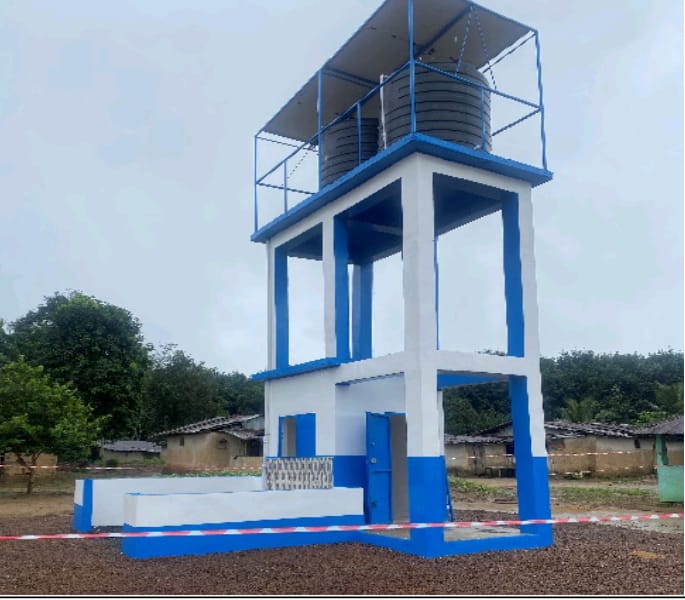In rural Montserrado County, Liberia, about 50,000 residents are benefiting from safe drinking water initiatives funded by the Church of Jesus Christ of Latter-Day Saints through WaterAid Liberia. Recently, a state-of-the-art water facility was inaugurated in the Back Camp Community of Todee District, aimed at bolstering access to safe water for local inhabitants and surrounding areas. The initiative is part of WaterAid’s broader rural WASH (Water, Sanitation, and Hygiene) project, which is designed to improve equitable and sustainable access to essential water services for communities and schools. Over a year, this project aims to serve some 13,375 individuals across 14 communities and five schools, making a significant contribution to water security in the district.
Local residents are optimistic about the new water supply system. Residents like Annie Forkpa highlighted the transformative impact of this facility, noting the previous challenges faced during the dry season when wells often ran dry, forcing residents to depend on unsafe sources for water. The new system, powered by solar energy, can hold 2,000 gallons of water and features three separate collection points strategically located around the community. With multiple taps available, it is expected to serve a wide swath of residents efficiently, addressing the chronic water shortages that have historically plagued the area.
Despite being the largest district in Montserrado County, Todee District faces unique challenges regarding access to vital WASH services. Many community members, particularly women, children, and individuals with disabilities, must navigate difficult terrain to reach water, sanitation, and hygiene facilities. The lack of essential social services—such as adequate healthcare and educational facilities—further exacerbates the issues faced by residents. The effort by WaterAid not only aims to provide clean water but also addresses these broader social inequalities by reducing the time and effort required to fetch water, which is crucial for enhancing overall community health and wellbeing.
Access to clean drinking water is critical in Liberia, where statistics reveal that while approximately 76% of the population has some access to basic water, over 1.1 million people are still lacking this necessity. The initiatives led by WaterAid not only aim to meet the immediate needs of these communities but also align with the United Nations Sustainable Development Goals (SDGs), specifically Target 6.1, which calls for universal and equitable access to safe and affordable drinking water by the year 2030. This commitment underscores the necessity for the Liberian government to prioritize water access as a vital component of national health and development policies.
The accomplishments of the initiative in Todee District have been widely acknowledged. At least 5,987 individuals have gained access to clean drinking water, and 981 students and school staff are now equipped with modern toilets featuring menstrual hygiene management facilities. Moreover, over 7,000 individuals have been reached with important hygiene messages, significantly outperforming initial targets. Todee District Superintendent Emmanuel David commended the funding from the Church of Jesus Christ of Latter-Day Saints and the successful implementation strategies of WaterAid, which have been instrumental in these advancements.
The Liberia National Water, Sanitation, and Hygiene Commission has expressed a desire to replicate the innovative design of the new water facility in the upcoming national WASH Plan due to its effectiveness. Officials, including Philip McKay of the NWASHC, have praised the system’s user-friendly design and potential for delivering a reliable supply of clean water. As the government moves to emulate WaterAid’s approach, there is hope that such initiatives will not only contribute to improved water access but also significantly reduce health risks related to waterborne diseases, which continue to afflict the population. The effort represents a crucial step towards achieving sustainable progress in public health and addressing the needs of the most vulnerable populations in Liberia.














